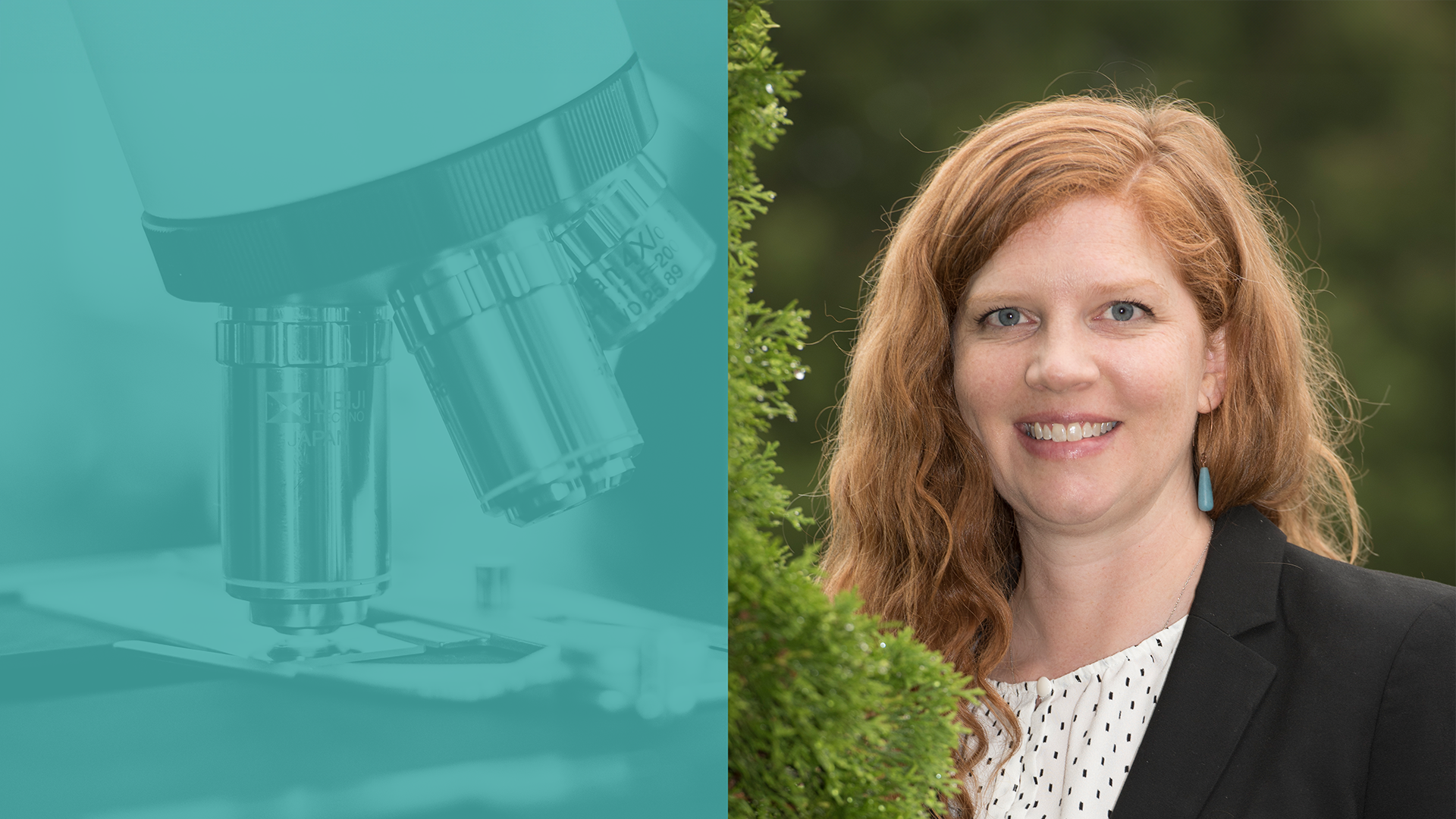Women in Research: A conversation with CIFAR’s Jessica Metcalf
By: Liz Do
5th Feb, 2024
What barriers do women still face in the research community? Metcalf joins a dynamic panel of speakers at CIFAR Talks: Women in Research, on Feb. 28
Jessica Metcalf wasn’t always a microbiome scientist. She began her research career studying wildlife genetics and ancient DNA, getting samples from teeth and bones of endangered species and extinct Ice Age animals that are preserved in places like caves.
“Then, I met a scientist who was really interested in trying to uncover the microbes that were in the guts of ancient people through well-preserved fecal samples,” explains Metcalf, a CIFAR Azrieli Global Scholar from the Humans & the Microbiome program. “And so that's actually how I got into microbiome science."

CIFAR TALKS Women in Research
WATCH NOW on YouTube. Click the link below.
Today, Metcalf’s research looks at the interactions between microbes and animals during life and after death. Along her academic journey, Metcalf has experienced both professional and personal challenges that she has overcome. However, as a woman in research, many challenges persist (women comprise only 30 per cent of the global academic community).
Ahead of CIFAR Talks: Women in Research on Feb. 28, Metcalf sat down with CIFAR to chat about her journey and why it’s important to shine a light on the challenges facing women in research today.
CIFAR: Can you take me through your research career and share some of the highlights, achievements and challenges you’ve faced along the way as an academic?
Metcalf: I didn’t follow a typical path early on. Straight out of undergraduate studies, I started a PhD program, and then went on to do two postdocs.
During the second postdoc, I also learned that my partner was diagnosed with cancer. That was obviously a life-changing event. I was trying to figure out how to navigate everything, including continuing my science career.
I then accepted a faculty position at Colorado State University (CSU). I actually got tenure fairly quickly here; I'm really happy that that wasn't too much of a challenge, because my life challenges continued. I also went through a pretty intense in-vitro fertilization (IVF) journey. In 2019, I had my daughter and my husband also died of cancer. And then we got hit with COVID-19.
Two years later, I actually decided on my own to have a second child through IVF. And so I have two kids now and I am a single parent, which is extremely challenging. But despite that, I have managed to maintain a successful research program and I have great colleagues here at CSU.
Balancing an academic life with a lot of commitments is very hard; it’s difficult for me to travel, for example. Actually, that's one of the things that has been really great about CIFAR is that they provide childcare for meetings — I can have a caregiver here with my children while I go to a CIFAR event. This is not something I can afford to do personally.
CIFAR: Who have been your mentors or role models in your research journey?
Metcalf: There are certainly many women who have supported and continue to support me though my career, including Margaret McFall-Ngai, who is an amazing scientist and part of my CIFAR program, as well as women leaders at my institution such as Jan Leach, Amy Charkowski and Kelly Wrighton.
I’d say on a more frequent basis, I look to my mom-colleagues for support and encouragement. Balancing all the things can be extremely challenging and sometimes we need to talk through just adjusting expectations, how to kindly rotate out of some commitment, etc. This includes many friends I’ve made through my postdocs and my current faculty position, as well as those I met through my work as part of the leadership at 500 Women Scientists.
I also want to mention that I did the National Center for Faculty Development and Diversity (NCFDD) Faculty Success Program, which CIFAR sponsored, and learned some great tools to stay focused and efficient.
CIFAR: On February 28, you’ll be among the panelists for CIFAR Talks: Women in Research. Why did you decide to participate?
Metcalf: Throughout my scientific career, I've spent a lot of time advocating for women in science. I've been part of 500 Women Scientists since it was just an idea. I'm also the co-chair for our Faculty’s Council for Gender Equity at CSU. As part of that, we work on a number of different priorities, including improving the support, particularly for women of colour, around bias and harassment on campus. I spearhead efforts to improve caregiver support on campus: I am currently working on a rule change that would allow temporary childcare support for research travel as well as improving parental leave to include a semester of service and teaching release.
I do spend a huge amount of time doing service, which is again, a very gendered issue. But I think my motivation here is that I’m always interested in networking with other women who are dealing with these challenges, and then coming up with ways for our universities and institutions to improve gender issues, and amplifying that work through larger voices such as 500 Women Scientists, as well as opportunities such as this CIFAR Talks panel.